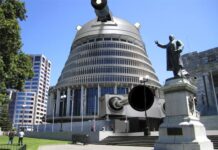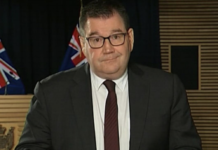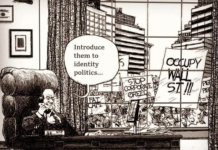About 4200 Primary Health Care and Plunket nurses across New Zealand will go on strike for four hours on Thursday over employers’ inability to deliver Pay Parity with nurses employed by Health NZ Te Whatu Ora, due to a lack of Government funding.
New Zealand Nurses Organisation Tōpūtanga Tapuhi Kaitiaki o Aotearoa (NZNO) members from the two groups will walk off the job from 10am until 2pm following more than a year of failed negotiations with their employers.
New Zealand College of Primary Health Care Nurses Chair Tracey Morgan said the nurses who work in medical centres and after-hours emergency clinics as well as those employed at Plunket were striking to demand respect and bring attention to the value PHC provide to Aotearoa.
“The inability to fix Pay Parity shows a basic lack of respect for our professionalism and the contribution we have made to keeping people out of hospital every day and for being the first defence against COVID-19.”
PHC nurses also had the same qualifications, training and responsibilities as Te Whatu Ora nurses but were paid significantly less, Ms Morgan said.
“Typically, Primary Health Care nurses earn as much as 10 to 20 percent less than their colleagues at Te Whatu Ora, while Māori and iwi provider nurses are worse off receiving as much as 25 percent less.
“This is a fundamental injustice and a threat to the health and safety of both health workers and patients.
“Unfair wages are causing nurses to leave Primary Health Care and that means fewer services and longer wait times for people in the community, which puts their health at risk.”
Nurses in every sector in New Zealand have had enough, and PHC and Plunket were in the same boat, she said.
“The Government wants to blame the staffing crisis on the hard winter, but the real problem is that nurses are leaving Primary Care because they are underpaid and this is having terrible flow-on effects for community health services.
“It is also massively impacting on hospital emergency departments. More people are turning up at EDs acutely unwell because they have not been able to access Primary Health Care services locally.”
Ms Morgan said further strike action could not be ruled out if Pay Parity was not achieved soon.
Earlier this month, nurses covered by the Primary Health Care collective agreement and the Plunket agreement voted overwhelmingly to strike for four hours (10am-2pm) on 27 October.
Each group held their own strike ballot but chose to strike at the same time as a display of solidarity and because they face the same issues. Both groups rejected an employer offer of 3 percent or less, with further talks having stalled because employers say their funding from Government is too low for them to offer any more.
Information on strike rally times for different towns and cities can be found here
https://maranga-mai.nzno.org.nz/value_our_primary_health_care_nurses





good on them left no option and it’s the government not the nurses harming the patients…bet the functionaries and the media go with that old favorite the ‘holding the country to ransom’ trope….all soooo predictable….good luck to the nurses.
No crisis here says Dr Doo Little .When is he going to front up to lack of staff causing burnout .Chch Press headline Tuesday NURSES fear going to work due to having to face angry sick people waiting hours in ED . Rest home beds going unoccupied as no staff to,look after older people and causing many to be kept in hospital as they cannot be discharged to the rest homes.
Why would Nurses come here when they have to wait 2 years for residentcy when they can go to Australia and earn more and become residents quicker.
Strangely we have on this site a Nurse who is very pleased with the income and also a fan of Andrew Little?